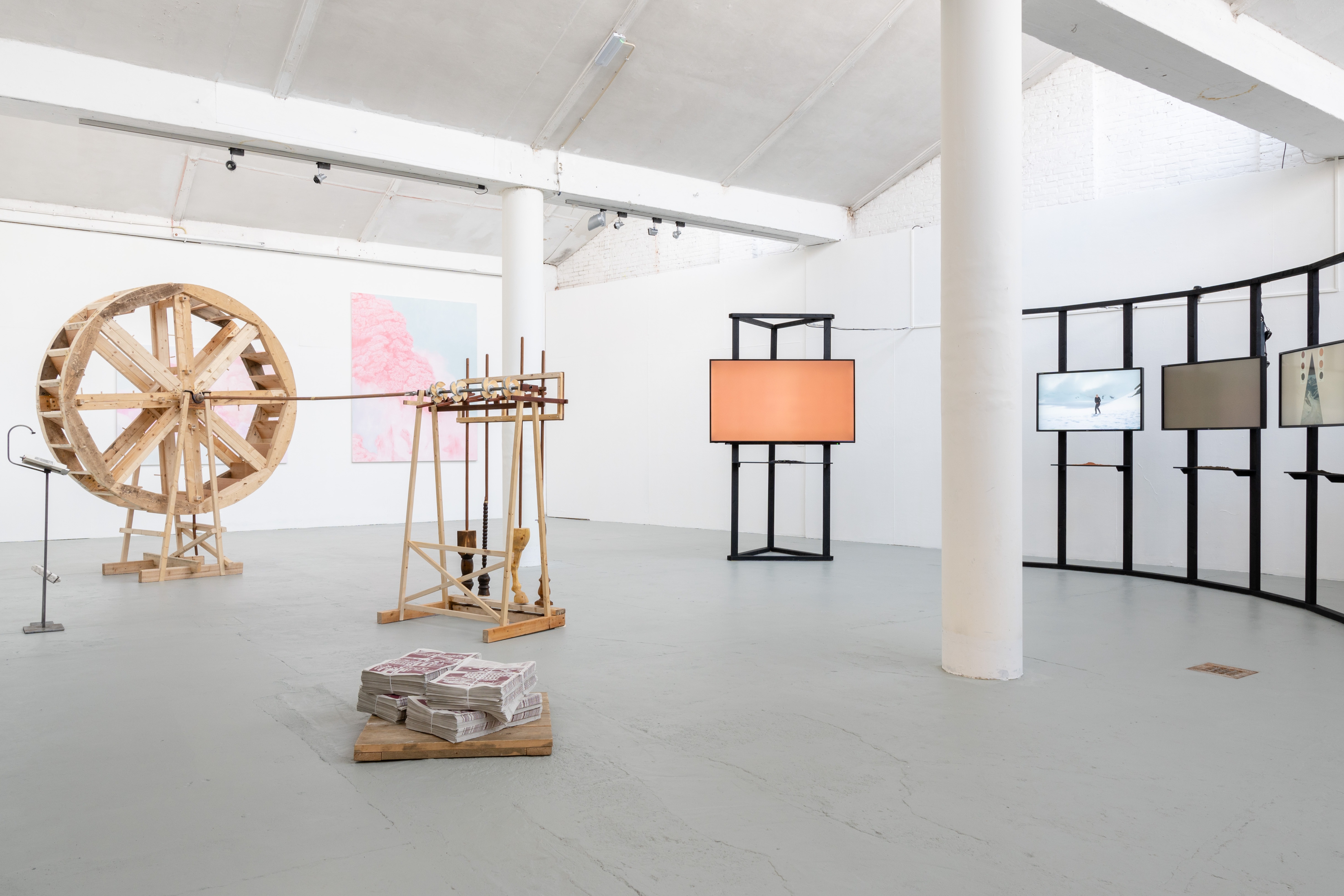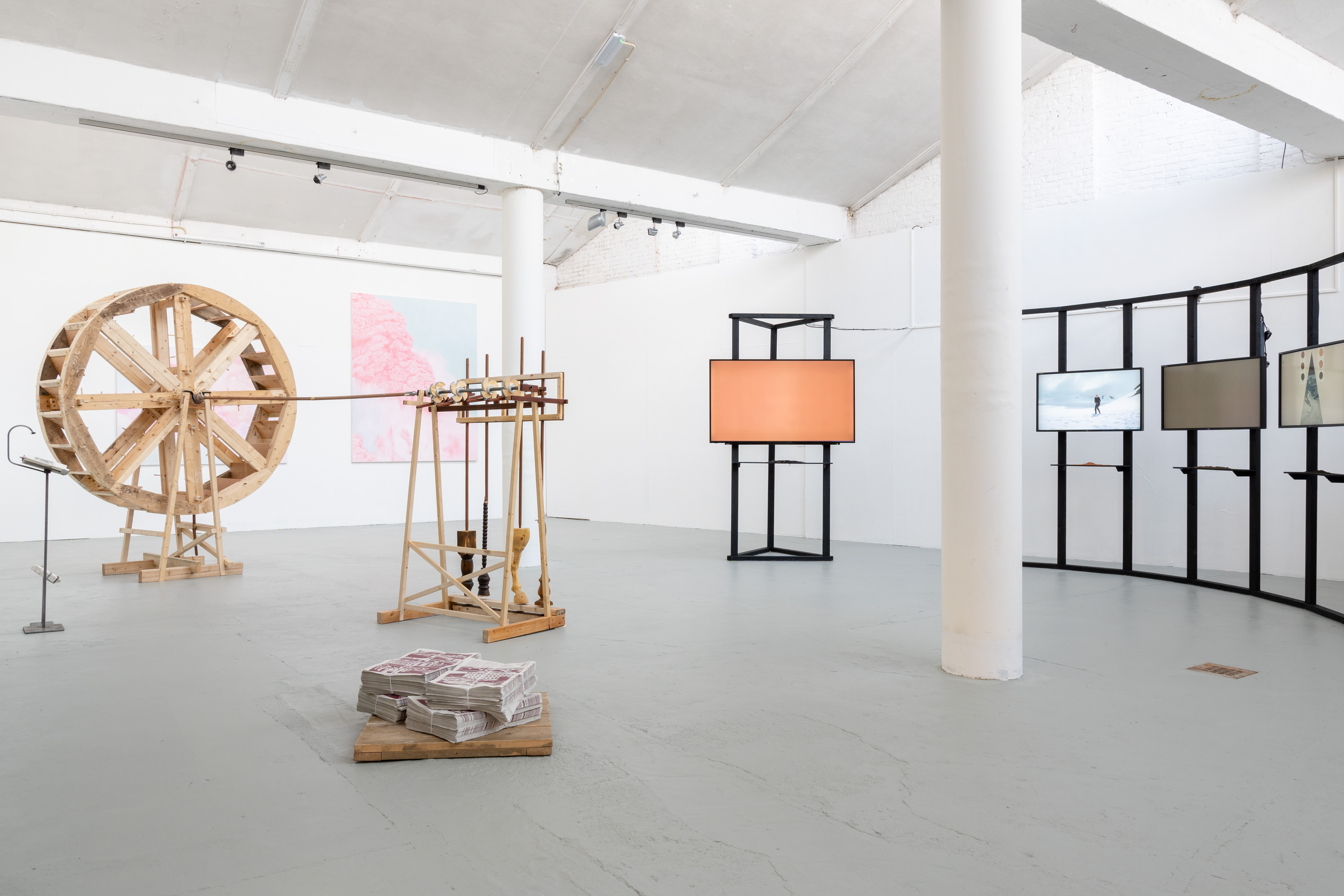POST Nijmegen




Penelope Cain, Mel Chan, Sonia Kazovsky, Mariana Marangoni
The end of the world is often depicted as a deserted, grey city with dilapidated buildings with weeds taking over the debris and growing between the asphalt cracks. It is an apocalypse we often see in films; a fictional scenario, outlining an almost aesthetic end of the world. How realistic is this image? Can we see the current state of the world as an apocalypse?
In times of climate disasters, pandemics and wars, Ever Ending does not consider the end of the world as a singular or linear event. Which worlds are displaced, if we only tell the Hollywood version of the apocalypse? What comes to light when we place historical events in the context of the apocalypse?
The exhibition brings together works showing a kaleidoscope of endings. Not trying to depict doomsday scenarios, these works look beyond the dominant narrative of the apocalypse. While wandering through the ruins, the fragile balance between dystopia and utopia is explored and forgotten worlds are given a voice.
Penelope Cain (AU/NL)
In her practice, Penelope Cain tells stories about land and water. Stories about the final phase of the Anthropocene and the period afterward, about occupied and colonised lands being exploited and transformed, and about more-than-human future fables and myths.
With a background in biological sciences, Penelope Cain focuses on the connection between scientific knowledge and hidden stories. She works with different media and lines of thinking; with scientists, datasets, people, landscape residues and the land itself, in order to map these stories from the present and the near future.
She undertook an award-winning S+T+ARTS research residency in The Hague (2022), exhibited at Re/Wild, Maxxi Rome, curated by Manuel Cirauqui, and at the SACO Biennale in Chile (2023).
Mel Chan (HK/NL)
Born in a former colony of the British Empire (Hong Kong), Mel Chan experienced the paradigm shift from neoliberalism to totalitarianism to ecological crisis. For her, the end of the world is much more than a metaphor; it is actually a painful fact that we must embrace.
In her artistic research, Mel Chan traces the complicated relationships between our dystopian situation and the legacy of (neo)colonialism. Her artistic practice includes participatory performances, hypnotherapy, storytelling, painting and videos. This practice gives people tools to deal with the crisis, recognising the historical context and exploring hope in times of uncertainty.
Mel graduated from the master programme Artistic Research at the Royal Academy of Art in The Hague (KABK) in 2019 and completed Philosophy and Comparative Literature courses at the University of Hong Kong. She has exhibited and performed in various art spaces, such as The Hague (1646, The Grey Space in the Middle, Page Not Found), Rotterdam (Kunstinstituut Melly, V2_, Roodkapje), Amsterdam (De Balie, BigArt, Vrij Paleis), Leiden (ACPA Conference), Tilburg (Kaapstad Art In Public Space Festival) and Scotland (Hospitalfield).
Sonia Kazovsky (RU/IL/NL)
Sonia Kazovsky is an artist and researcher, currently based in Amsterdam. Her research-driven practice inhabits different forms rooted in essayistic thinking and script writing.
In recent years, as a way of mediating research beyond the written word, Sonia has created performative installations that engage with theatricality as form and concept.
The notion of the ‘archive’ is central to her practice as she investigates various mechanisms of storytelling, exploring how narratives evolve and transform across different times and spaces, along with their changing political implications.
Her practice also includes pedagogical work with students, curatorial assignments and writing within and for institutions, including the Rietveld Academy, the Sandberg Institute and the Dutch Art Institute.
Sonia earned her bachelor’s degree with honors from the Gerrit Rietveld Academy in 2014 and completed her master’s at the Dutch Art Institute in 2017. Her work has been exhibited internationally in self-organised projects and institutional settings such as CCA Fabrica in Moscow, Van Abbemuseum in Eindhoven, Framer Framed in Amsterdam and ADAGP in Paris. In 2020, she was nominated for the Artist Revelation Prize of ADAGP in Paris. Her work is part of the Dutch Royal Library.
Mariana Marangoni (BR/UK)
Mariana Marangoni is an artist, researcher and teacher based in London. Through a wide range of media, such as installations, web-based experiments and visual poetry, she critically explores the materiality of media and the aesthetics of digital decay. Recent work has focused on varied computational models for an increasingly depleted planet.
Mariana is currently a PhD student at the Creative Computing Institute and lecturer at the bachelor programme Fine Art: Computational Arts program at Camberwell College of Arts. She has lectured and exhibited internationally at the Victoria and Albert Museum in London, Rhizome.org, Ars Electronica in Austria and Transmediale in Germany.